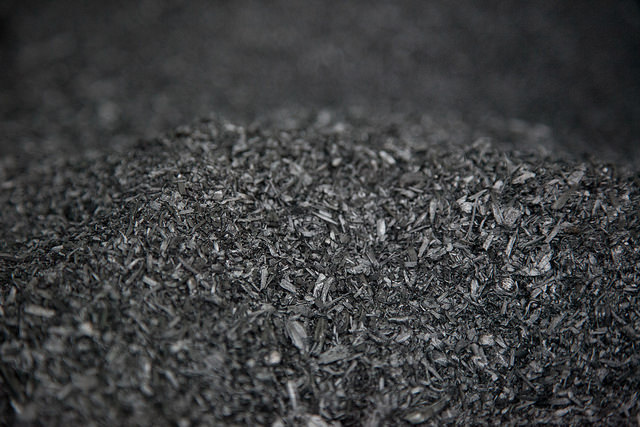Along with compost and mulch, biochar has become an increasingly sought after commodity in the agricultural industry. The following is an overview of biochar and its effects on soil and the environment.
What Is Biochar?
Biochar is a form of charcoal used as a soil amendment. Though similar in appearance, it differentiates from charcoal that is used for fuel, and is far more beneficial to the environment.
How Is Biochar Produced?
Biochar is produced through pyrolysis, a process in which agricultural waste such as plant matter, crop residue, or manure is heated in a low or zero oxygen environment. The carbon absorbed within the organic material during photosynthesis is then captured and converted into a stable solid form. This creates a fine-grained, highly porous charcoal that helps to retain soil nutrients and water, while increasing soil biodiversity.
Different kinds of biochar are produced depending on the type of organic material used and the temperature that is reached during pyrolysis. Each type has its own distinct benefits. For example, biochar produced from manure has richer nutrient content than that formed from wood chips, whereas wood based biochar does not degrade as quickly, persisting over a longer period of time. Higher temperatures often yield biochar that has a greater absorption capacity. This increases the potential for biochar to absorb and contain toxic substances like mercury. Biochar can take various forms, appearing as sticks, pellets, or ash.
What Are the Benefits of Biochar?
Biochar provides many of the same benefits as other organic materials, but it is a more permanent alternative. Due to its increased porosity and chemical nature, biochar has the ability to attract and retain water and nutrients like nitrogen and phosphorous. In depleted soils with few organic resources, and inadequate water supplies, the application of biochar can increase soil fertility, and aid in nutrient preservation. On a broader scale, biochar is able to sequester carbon in soils for hundreds to thousands of years, preventing it from being released into the atmosphere. It also produces oil and gas byproducts that can be used as a clean, renewable source of energy.
The Advantages of Being Carbon Negative:
When applied as a soil enhancer, sustainable biochar systems can become carbon negative. The attractive qualities of biochar enable it to contain carbon in the ground for long periods, resulting in a net reduction of carbon dioxide (CO2) in the atmosphere. In contrast, fossil fuels are carbon positive, and add an abundance of carbon dioxide and other greenhouse gases to the air. Ordinary biomass fuels, such as wood, crops, manure, or waste residue, are a cleaner alternative to fossil fuels. But while they are not as detrimental to the environment, biomass fuels are carbon neutral. This means that the carbon captured in the biomass through photosynthesis is eventually released into the atmosphere through natural processes like decomposition.
Additional Climate Benefits of Biochar:
- Biochar can improve soil fertility, which stimulates plant growth. Healthier plants are able to consume and convert more carbon dioxide (CO2), thus improving air quality.
- Due to its ability to retain soil nutrients for long periods of time, biochar reduces the need for chemical fertilizers. It also reduces soil acidity, decreasing the amount of liming required to maintain proper soil health.
- The immense surface area, and extensive porosity of biochar provides a safe habitat for microorganisms. This promotes the development of soil microbial life, which can allow for greater nutrient uptake by plants.
- Converting agricultural waste, and other organic materials into biochar can help prevent carbon dioxide and methane emissions generated by biomass fuels through decomposition.
- Biochar offers a way to dispose of the massive quantities of manure created by livestock.
- Biochar helps limit the emission of nitrous oxide (N20) and methane (CH4) from agricultural soils; Nitrous oxide and methane are two of the most potent greenhouse gases that contribute to climate change.
- Finally, the heat energy created during the production of biochar could potentially be used as a replacement for fossil fuels. If it proves to be a viable resource, biochar could drastically improve the quality of the atmosphere, and assist in reversing the effects of climate change.
If you would like to learn more about biochar, check out these additional resources:
http://biochar-us.org/soil-water-benefits-biochar
http://e360.yale.edu/feature/as_uses_of_biochar_expand_climate_benefits_still_uncertain/2730/
http://www.biochar-international.org/biochar/carbon
Image provided courtesy of the Oregon Department of Forestry.


